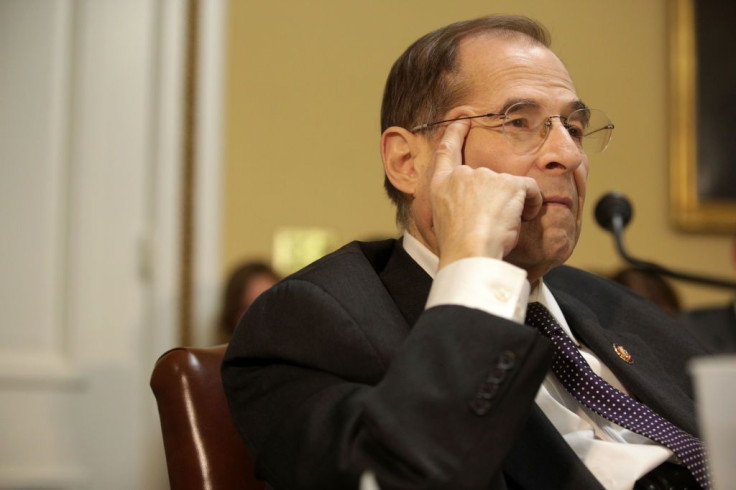Trump News: Congressional Democrats Deliberate As Impeachment Pressure Grows

Though House Democrats remain split over how swiftly to respond to the Trump administration’s repeated refusals to answer subpoenas, there appears to be unity within the party for a potential vote for contempt or impeachment.
Rep. Jamie Raskin, D-Md., who serves on both the Judiciary and Rules committees, said he supports taking action as soon as possible, but “the whole caucus is in a discussion about which strategy is going to move us forward to counter the lawlessness of the administration,” he told the Hill on Friday.
Outside of Washington, Pelosi says nor hears much about Trump or impeachment https://t.co/0zGMiaT68Q
— The Washington Post (@washingtonpost) May 24, 2019
Attorney General William Barr, Treasury Secretary Steven Mnuchin and former White House Counsel Donald McGahn, all have defied congressional subpoenas in the past two weeks. However, earlier in the week, Barr agreed to turn over more information from the Mueller Report to the House Judiciary Committee to avert the committee taking enforcement action against him.
President Trump also has slighted both House and Senate Democrats this past week. During a planned meeting with Democratic leadership to talk about a reported $2 trillion infrastructure package, the president entered the Cabinet room at the White House, did not sit or shake hands with any in attendance and then stood at the end of the table, stating he would not work with Democrats on any legislation until they stopped investigating him.
The meeting reportedly lasted about three minutes before Trump left for the Rose Garden, where a podium and printed signs were posted, from which he gave the press essentially the same message, drawing attention to the cost of the Mueller investigation and its apparent finding there was no collusion between Trump operatives and the Kremlin in efforts to influence the 2016 presidential election.
Pelosi, Nadler clash over whether to launch Trump impeachment proceedings https://t.co/aH0EqAWg1e pic.twitter.com/l4dOxC35Yf
— The Hill (@thehill) May 25, 2019
Some House leaders have become increasingly frustrated with the White House’s apparent disregard for a coequal branch of government and have sounded the drum for swifter action, including starting impeachment proceedings. Speaker of the House Nancy Pelosi, D-Calif., has called for a slower, more methodical approach.
If left strictly to Congress, it’s likely Trump could be impeached by the House but not the Senate, in the same manner former President Bill Clinton was impeached in the wake of the Monica Lewinsky affair. Trump would remain in office and the action could backfire with the American public, who would see a split Congress on impeachment as a vindication of the president and a loss for a perceivably weak Democratic party.
A slower, more deliberate approach, with an increasing amount of information available to the public regarding administration practices, could sufficiently shift opinion in favor of impeachment and that shift would put pressure on Senate leadership in the Republican-controlled chamber. The Constitution requires an impeachment proceeding to not be partisan.
House Judiciary Chair Jerrold Nadler, D-N.Y., increasingly has pushed for a contempt vote against Barr and the start of impeachment proceedings once Congress resumes session after the Memorial Day recess, possibly as early as June 4.
But Pelosi has sought to slow down impeachment calls, a position that is backed by poll numbers. Only about 28% of Americans have said impeachment should be a congressional priority, according to a Morning Consult/Politico poll.
Former Republican Congressman Tom Coleman: “Trump, Pence are illegitimate. Impeach them” https://t.co/KibQNmdZXo
— Rachel Maddow MSNBC (@maddow) May 24, 2019
Nadler, a 14-term congressman, told MSNBC host Rachel Maddow that he had urged Pelosi to accelerate the House response to an increasingly intransigent Trump administration but conceded Democratic victories in courts against the administration have weakened his argument.
While support in the Judiciary Committee for swifter action is overwhelming, it is not unanimous.
All of this has led Raskin, a former constitutional law professor, to characterize the back and forth as less contentious and more of a family discussion on how best to resolve a household issue.
© Copyright IBTimes 2024. All rights reserved.





















